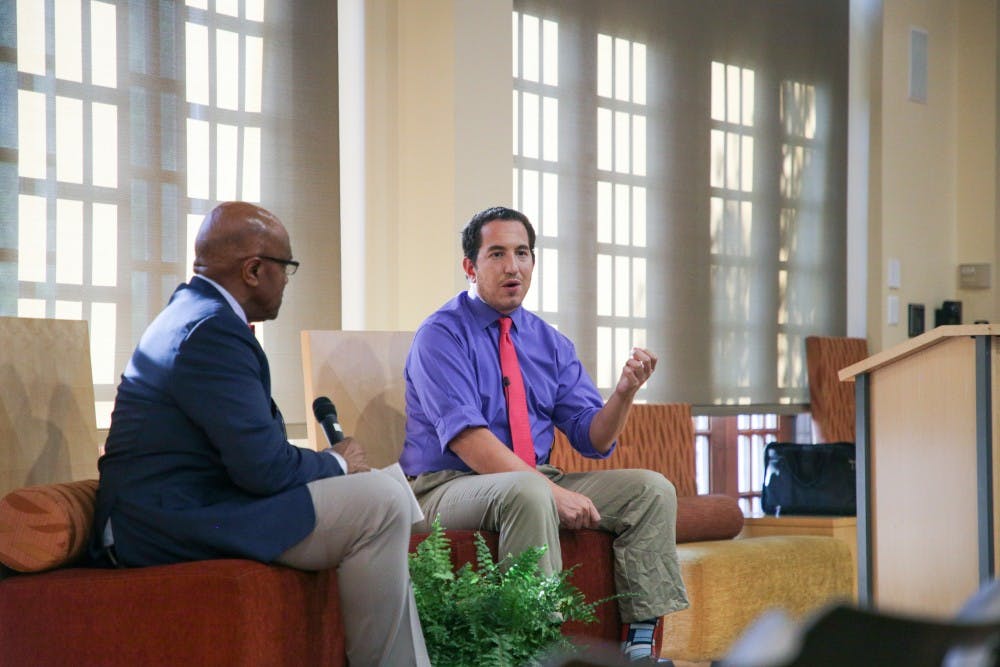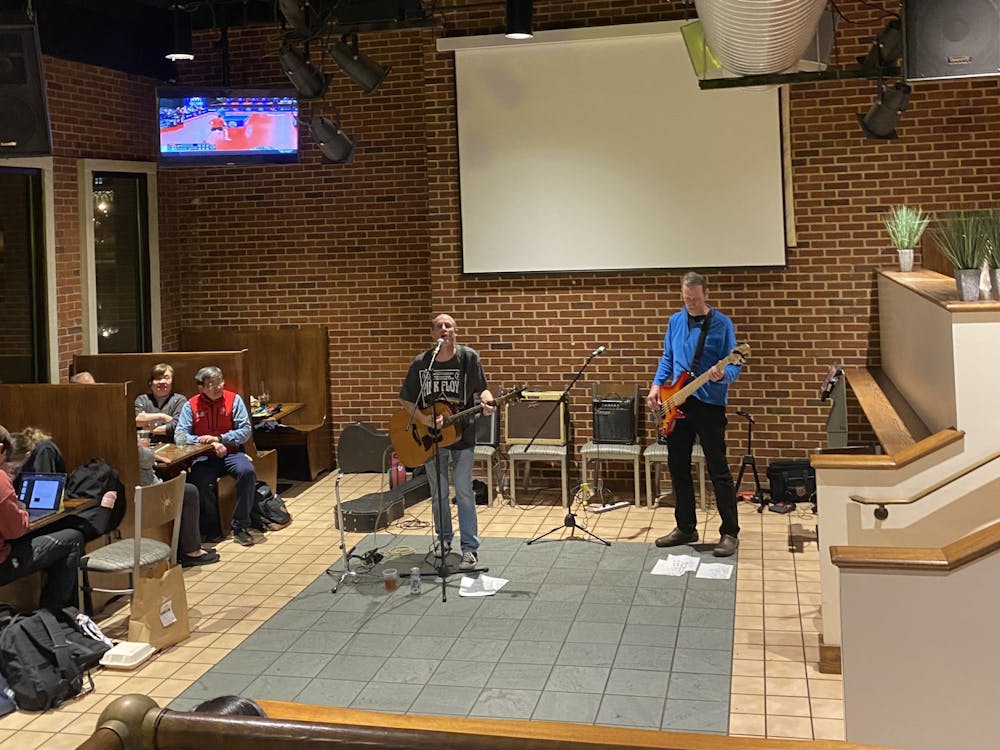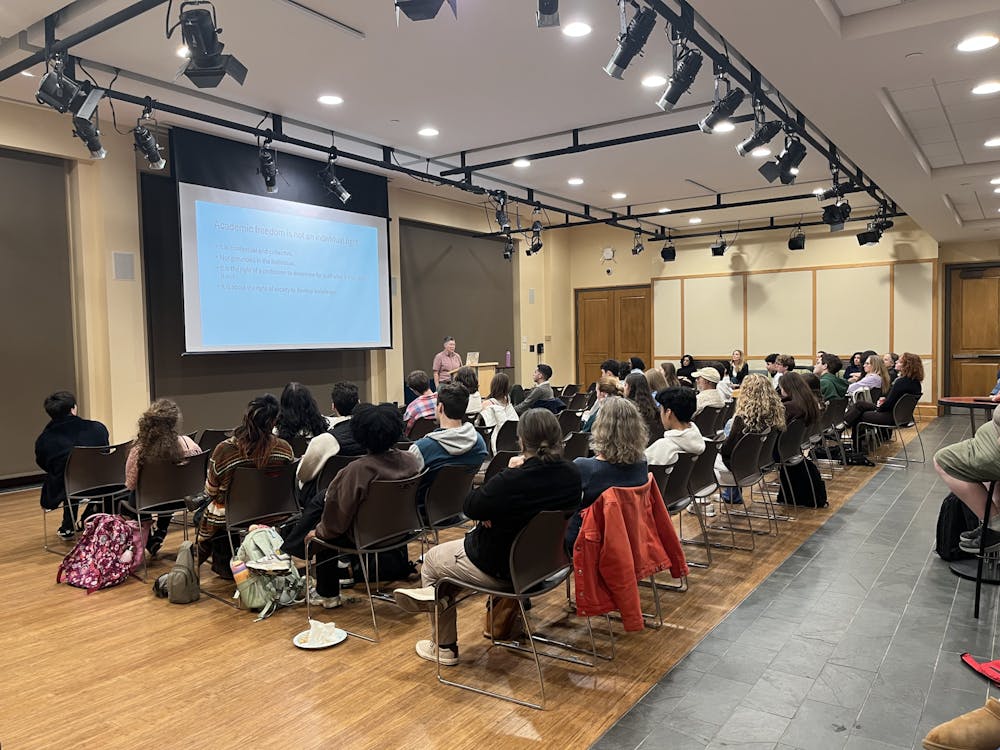Editor's Note: The article has been edited for clarity.
The Collegian sat down with Alexander Heffner, the host of the PBS show "The Open Mind," before his open dialogue event with University President Ronald A. Crutcher Monday, Sept. 9.
"The Open Mind" was started in 1956 by then-host Richard Heffner -- Alexander's grandfather -- to discuss contentious topics that are on the forefront of American society and to help viewers keep an open mind when having these discussions in their life. In 2014, after Richard's passing, Alexander Heffner began hosting "The Open Mind" with the desire to continue the conversation his grandfather had started.
Over the summer, Crutcher was featured as a guest on the show to discuss diversity and issues such as affirmative action in the context of higher education.
The Collegian met with Alexander Heffner to get his opinion on the direction of civil discourse, civic action and civic responsibility in the U.S. today.
Q: The show, "The Open Mind," has been going on since 1956. You have been the host for five years now. Has the goal of the show, or what you see as the goal of the show, changed or progressed even in recent years as you took it over?
A: It continues to be really humbling to perpetuate this institution. I think that the most essential ingredient is balancing the promise of free speech and expression and … upholding important human and moral values. That centerpiece, the intersection of speech that is constructive and helping facilitate it and really rigorously interrogating ideas, has stayed true and continues to stay true.
But I think that we have to be more forceful than ever to assert that the power of speech to serve a community and the public good comes from it being constructive speech and not destructive speech. I think that’s something that is really important to emphasize today in the climate of Twitter and ad hominem attacks. And [ad hominem attacks] have always been there historically, but since they are so dominant right now, it is really essential to counteract that.
Q: Do you feel as though you have a certain responsibility to aim your show not just at the liberal base but at the larger American base? How do you do that coming from a place of being often labeled a more "liberal source"?
A: Well, one really important thing that we aspire to achieve, and I think we do it really well, is geographic diversity. If you were to watch the program over a span of episodes you’d find thinkers from Hawaii, Missouri, New York -- but I think that there is a whirlwind of change right now in terms of defining what is conservative and what is liberal. If you define it based on moral character, fiber and ethics as conservatism and Teddy Roosevelt's idea of conservatism, you know that’s a ballpark of a difference from some of the modern incarnations.
So I think you have to really analyze carefully these words and frame them in a way that is understandable to people without reducing the complexity and the historical context … At the end of the day, I am fairly confident in making this point, that the conservatives and liberals want the lives and livelihoods of their communities to be advanced economically, spiritually, and that is the essence of what the show is about.
The definition of liberal and conservative has changed and we want to advance the lives of our neighbors and our towns.
Enjoy what you're reading?
Signup for our newsletter
Q: It seems that a lot of people have a different sense of what is —
A: What is normatively good or bad … yeah, that’s right, and I think that’s fair but people need to have a historical underpinning of kind of what is normal and a sense of normal in our politic and our history. That’s what our program really seems to capture.
Q: You're saying it captures that sense of putting it into context?
A: Historical perspective, context. There are ways in which today is abnormal and not reflective of American patriotism that we saw in the aftermath of World War II or during the height of the Cold War in the Cuban Missile crisis or after 9/11. Those all happen to be frightening geopolitical challenges that rallied our camaraderie.
There are moments like landing on the moon and NASA’s birth … when we host the Olympics ... there are examples of where there can be a positive patriotism that emerges out of history that is not crisis or calamity … But in order to remember that we have that ability, we can’t be revisionist historians.
As an example, we have had presidents who have been irritated by the press. We haven’t in recent American history had a president who, until now, demonizes a whole class that is protected by the First Amendment, that is part of our noblest heritage of free expression, which is the Fourth Estate, which is freedom of speech from citizens and so the delegitimizing and marginalization of the press is an example.
Yeah, that’s a historical fact -- look at today and look at decades past. Our politics have become very tribal. Now, you put the tribe before the fact instead of the fact before the tribe … I would hope, though, that you can have a conversation where you may start the conversation from a point of disagreement but conclude the conversation from not a point of agreeing to disagree but agreeing to understand the causation of how you came to form that point of view.
I think that in the current climate we ought to embrace constructive speech that's designed — whose intention is to uplift people and to stimulate them intellectually and advance their intelligence. I don’t think being interesting merits invitation to a candidacy. I don’t think being interesting or provocative is a way to articulate your argument. And so, employing civic discourse can, I think at a minimum, help you understand where a person is coming from.
Contact news writer Eli Kline at eli.kline@richmond.edu.
Support independent student media
You can make a tax-deductible donation by clicking the button below, which takes you to our secure PayPal account. The page is set up to receive contributions in whatever amount you designate. We look forward to using the money we raise to further our mission of providing honest and accurate information to students, faculty, staff, alumni and others in the general public.
Donate Now



